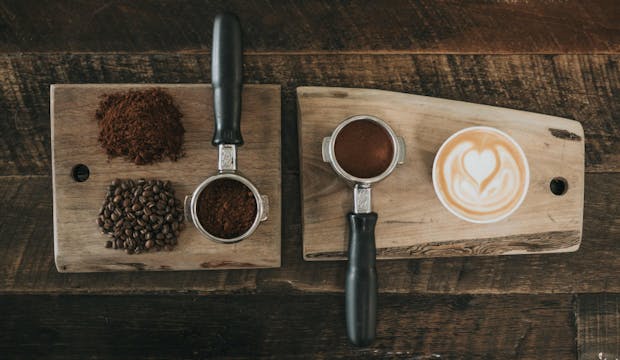a coffee crisis is brewing

a coffee crisis is brewing
American filmmaker David Lynch had once said, “Even bad coffee is better than no coffee at all”. life without coffee would indeed be hard to imagine. this worst nightmare of everyone’s life is slowly turning into a reality. on one hand, coffee prices are close to a decade-high. on the other, production shortages have led to a supply crunch.
in Brazil, which is the world’s largest coffee producer, adverse weather conditions including drought and frosts have led to a fall in production this year. a similar situation is playing out domestically as well. over one-third of Karnataka’s coffee crops have been destroyed by unseasonal rains. here, the Arabica coffee variety has suffered heavy damages.
so far, coffee prices have already risen by 30% because of global supply concerns. as of November 15, the prices of raw coffee — Arabica Parchment variety — stood at Rs 13,000 per 50 kg bag, up from the Rs 10,000-10,500 levels in the same period last year. the prices of the Arabica cherry (unwashed coffee) are around Rs 5,600 per bag compared to Rs 3,750 levels a year ago.
what’s causing this deficit?
coffee is a weather-sensitive crop. this means that the crop gets damaged even if there are slight alterations, be it deficit rainfall or an excess.
brazil faced a drought in June. this led to water scarcity for the coffee crops. and then in July and early August, the region faced frost and freezing weather. the overall impact was severe on the coffee crops, especially the Arabica variety, which is usually harvested in September.
with Arabica production under pressure, Robusta coffee prices rose instantly to a four-and-half-year high. vietnam, which is the world’s largest robusta coffee producer, also faced a shortage of shipping containers because of the Covid-19 restrictions.
globally, prices started rising rapidly. in the London market, robusta coffee prices have been on a steady increase since April. the robusta variety is the key ingredient in instant beverages such as Nestle’s Nescafé.
in the 12 months ending September 30, the benchmark price for commodity-grade Arabica coffee on the New York International Commodity Exchange rose from $1.07 per pound to $1.95 per pound.
how expensive will your cuppa get?
For now, there is some relief in price volatility. the International Coffee Organisation (ICO) said that although coffee prices continued to increase, their volatility weakened in October 2021. intra-day volatility of the ICO composite indicator price increased by 0.1 percentage points to 8.3% in October 2021.
apart from climate shocks and inflation, the pandemic also played a dampener in delaying shipment deliveries. for instance, Brazil’s exports to the US, which earlier took one month, are now taking 100 days.
ICO said in its report that increasing production expenses, including fertilizers and labor costs, along with substantial increases in the transport costs are expected to reduce growers’ current gains from the price rise. in addition, this could also dampen investment avenues into production units.
global coffee consumption for the year 2020-21 (October 1-September 30) is estimated at 167.15 million bags, an increase of 1.9% over 164.02 million bags recorded a year ago.
for this, the projection for total production in 2020-21 is 169.64 million bags, representing a marginal increase of 0.4% over the previous year. however, concerns over the supply from origin nations are affecting market conditions, as weather risks and Covid-19 disruptions affect trade flows.
the Covid risk rises again
the Omicron variant of the coronavirus had led to murmurs of travel restrictions and curbs on international flights across the globe.
if this variant increases the transmission of the virus, countries will be forced to go back to stringent lockdowns, leading to shipping delays on the supply side and cafe shutdowns on the retail sale front.
coffee majors such as Starbucks and Nestle usually purchase coffee beans at least 12-15 months in advance. however, if the rate hike continues till the end of the year, these players will be forced to pass on the increases to customers.
all eyes are now on the robusta harvest season in December. coffee growers, retailers, and caffeine enthusiasts alike are betting on benign weather and minimal Covid-19 impact for a bumper crop.
if coffee chains eventually decide to pass on the 30% cost increase to customers completely, a cup of coffee could cost Rs 400. making your own cuppa at home won’t be cheap either because instant coffee prices, too, will go up.



